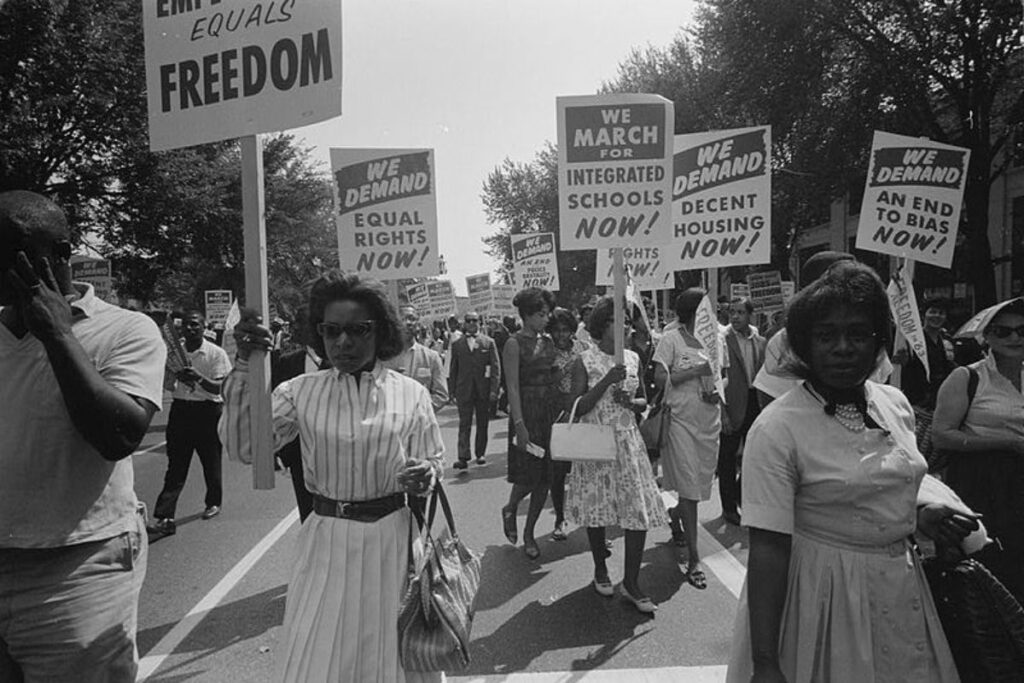Cultural movements aren’t just moments in history—they’re the forces that shift how people think, create, and live. These movements have shaped societies, challenged norms, and left behind legacies that still inspire us today. Here are ten cultural movements that transformed the world in lasting and unforgettable ways.
The Renaissance
The Renaissance, starting in the 14th century, was all about rediscovering art, science, and human potential. It brought masterpieces like the Mona Lisa and scientific breakthroughs from minds like Galileo and da Vinci. Beyond creativity, it sparked a new way of thinking, questioning old traditions, and embracing curiosity. This movement set the stage for the modern world, proving that looking to the past can ignite the future.
The Enlightenment
The Enlightenment, also called the Age of Reason, championed logic, freedom, and individual rights in the 17th and 18th centuries. Philosophers like Voltaire and Rousseau challenged monarchies, sparking revolutions like the American and French Revolutions. It gave the world the idea of democracy, equality, and the value of questioning authority. This intellectual movement wasn’t just about thinking—it reshaped how societies governed themselves.
The Harlem Renaissance
The Harlem Renaissance of the 1920s was a celebration of Black culture, creativity, and identity in America. Writers like Langston Hughes and musicians like Duke Ellington redefined art and music, blending cultural pride with innovation. It gave the world jazz, soulful poetry, and a platform for addressing racial inequality. This movement wasn’t just about art—it was about reclaiming a voice and inspiring change.
Romanticism
Romanticism in the late 18th and early 19th centuries was a big, emotional response to the cold logic of the Enlightenment. Artists, writers, and musicians embraced nature, emotion, and individuality in works like Mary Shelley’s Frankenstein and Beethoven’s symphonies. It challenged industrialization’s focus on machines, reminding people of the beauty and chaos of the natural world. Romanticism showed that imperfection and passion could be just as powerful as reason.
The Industrial Revolution
The Industrial Revolution in the 18th and 19th centuries wasn’t just about machines—it was a complete transformation of how people lived and worked. Factories replaced farms, cities grew, and inventions like the steam engine connected the world. It brought progress, but it also exposed harsh working conditions and environmental costs. This movement reshaped societies, laying the groundwork for our modern, fast-paced lifestyles.
The Suffrage Movement
The suffrage movement fought for women’s right to vote and was a defining moment for gender equality. Leaders like Emmeline Pankhurst and Susan B. Anthony organized protests, marches, and even hunger strikes to demand change. Their efforts led to groundbreaking victories, like the 19th Amendment in the U.S. and women’s suffrage in countries around the world. It wasn’t just about voting—it was about proving women deserved a voice in society.
The Beat Generation
The Beat Generation of the 1950s was all about rebellion, creativity, and challenging the norms of post-war America. Writers like Jack Kerouac and Allen Ginsberg explored themes of freedom, spirituality, and rejecting materialism. Their work paved the way for counterculture movements and inspired the hippies of the 1960s. The Beats showed that art and self-expression could be a powerful form of resistance.
The Civil Rights Movement
The Civil Rights Movement in the 1950s and 1960s redefined the fight for racial equality in America. Activists like Martin Luther King Jr. and Rosa Parks led protests, marches, and sit-ins to challenge segregation and discrimination. Their efforts resulted in historic achievements, like the Civil Rights Act of 1964 and the Voting Rights Act of 1965. This movement wasn’t just about laws—it was about changing hearts and minds.
The Hippie Movement
The hippie movement of the 1960s and 1970s embraced peace, love, and countercultural values in response to the Vietnam War and mainstream materialism. It brought colorful protests, psychedelic rock, and iconic events like Woodstock to the forefront. Hippies championed environmentalism, spiritual exploration, and rejecting societal norms. While the movement faded, its ideals of freedom and self-expression live on today.
The Digital Revolution
The Digital Revolution from the 1980s onward completely changed how people connect, work, and share ideas. With the rise of computers, the internet, and smartphones, the world became smaller, faster, and more interconnected. It gave us instant communication, social media, and access to endless knowledge at our fingertips. This movement transformed society into the tech-driven world we live in today, and we’re still feeling its impact.
These cultural movements didn’t just make a splash—they changed how we think, live, and create. They remind us that big shifts often start with bold ideas and passionate people willing to challenge the status quo.

